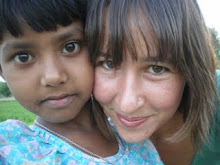
The cow is considered by the Vedas to be the most auspicious animal. Called "go" in Sanskrit, the cow bears the same name as the holy scriptures and is reflected in the name of the Lord Krishna, who was called Gopala, the one who protects both the holy scriptures and the cows.
Ayurvedically, milk is considered the most complete food and the first sattvic food. From this wholesome milk, the most healing unctuous substances for the human system are made - buttermilk, butter, yoghurt and ghee.
Unfortunately because of the unwholesome systems of modern-day animal husbandry, the artillery of poisons, chemicals and hormones used in animal feed alongside cruel treatment of the animals often kept in over-crowded and unsanitary cells means damage to this sacred food they produce. Yet thanks to recent efforts by many independent farmers, it is possible to obtain good quality milk and milk products.
Butter, yoghurt and ghee, all made from organic quality milk, are considered to be highly nourishing foods that enhance health and replenish life. They are all mainstays in traditional Indian diet and provide much of the necessary nutrients, especially for the large percentage of vegetarians in India.

Ghee, considered to be the most vital of the dairy medicines, is associated with the element of love in the body. Its subtle action allows it to penetrate deep into tissues, making ghee an excellent vehicle for conveying herbal powders and medicines into the body. Ghee is also said to impart confidence and virility into the body, promoting memory and the vital body essence, ojas. Ghee is made by a special process of boiling butter, thereby ridding it of the live enzymes that encourage bacteria. The quality of the ghee depends on the quality of the butter, as well as the method by which it is made and how it is stored. Generally the older the ghee, the more medicial it becomes.
 These photos are of the daily lassi process by mixing freshly made yoghurt with both hot and cold water and mixing it as shown. Lassi is a common Indian breakfast or snack, know for its unctious and nourishing properties and as a digestive aid. The women of the house, and generally the older women, are almost always in control of all the diary products in the traditional Indian household. As cows are a sign of wealth and milk products providing of so much nutrition, the detailed work of making the milk products is seen as very important, it is a daily and ongoing process.
These photos are of the daily lassi process by mixing freshly made yoghurt with both hot and cold water and mixing it as shown. Lassi is a common Indian breakfast or snack, know for its unctious and nourishing properties and as a digestive aid. The women of the house, and generally the older women, are almost always in control of all the diary products in the traditional Indian household. As cows are a sign of wealth and milk products providing of so much nutrition, the detailed work of making the milk products is seen as very important, it is a daily and ongoing process.




No comments:
Post a Comment